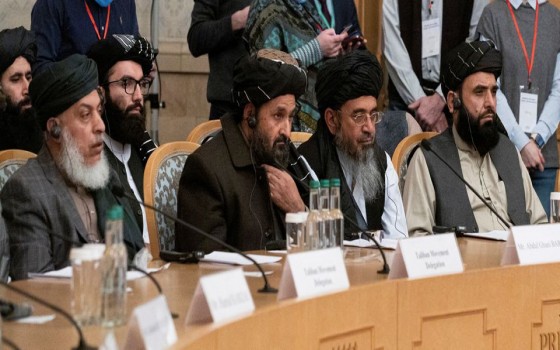
Exceptions to the UN travel ban for Taliban officials may be extended after its expiration

- Europe and Arabs
- Saturday , 20 August 2022 14:32 PM GMT
AFP
Diplomatic sources said that exemptions from the travel ban granted to 13 Taliban officials on the United Nations sanctions list expired Friday evening, pending approval by member states of the UN Security Council for a likely extension. 135 Taliban officials are subject to sanctions including asset freezes and travel bans under a UN Security Council resolution passed in 2011. But 13 of them were granted exceptions to this ban so they could meet officials from other countries abroad. In June, the sanctions committee responsible for Afghanistan, which includes the 15 members of the UN Security Council, stripped the names of two Taliban ministers, one of whom is in charge of education, in response to the regime's curtailment of the rights of women and girls. But it renewed the exemption of others from the travel ban for a period of two months, that is, until August 19, in addition to another month if no member state of the Council objects. Diplomatic sources said Ireland objected this week. Diplomatic sources told AFP that during the discussions, China and Russia expressed their support for extending the waivers, while the United States wanted to reduce the list of officials and destinations allowed. She explained that the latest proposal currently proposed is to allow only six officials to travel anywhere for diplomatic reasons. The same sources added that if no member state of the Security Council objects to the text until Monday afternoon, it will enter into force and remain in force for three months. But until then, the exemptions granted to 13 officials are supposed to expire at midnight on Friday. A spokesman for the Chinese presidency of the UN Security Council said this week that linking human rights in Afghanistan, especially women's rights, to the issue of Taliban leaders' travel may be "counterproductive." He added that "these exceptions are still necessary," denouncing the position of Westerners. "If re-imposing the travel ban on Taliban leaders is the only thing they want to do, they clearly have not learned the lessons," the same spokesman continued. Among the 13 officials are Taliban Deputy Prime Minister Abdul Ghani Baradar and Deputy Foreign Minister Sher Mohammad Abbas Stanikzai, who played a major role in negotiations with the administration of former US President Donald Trump that led to an agreement in 2020 that paved the way for the US withdrawal from Afghanistan. Despite promises to be more flexible when they returned to power a year ago, the Taliban have largely resumed applying the strict interpretation of Islam as they did when they were in power between 1996 and 2001 and imposed severe restrictions on women's rights and freedoms












No Comments Found